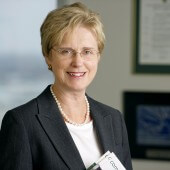

Mariam C. Noland, President, Community Foundation for Southeast Michigan
This piece originally ran in the Detroit Free Press on Saturday, May 18, 2019
Any day now, the U.S. Supreme Court will rule on whether the federal government can include a question about citizenship on the 2020 census.
The citizenship question — and the court fight that surrounds it — has dominated headlines about the 2020 census.
But it’s far from the only issue regarding the census that matters to southeast Michigan. Much is at stake in next year’s count, particularly the urgent need to make sure our region doesn’t suffer from an undercount.
That issue is a key focus for nonprofits and foundations throughout the region. And the success of our efforts will be a major factor in the health and prosperity of our community for years—even decades—to come.
The Constitution requires the government to count every person living in the United States every 10 years. This is, of course, a massive and complicated process — and one fraught with challenges.
Undercounts in the Census
Historically, some populations – including communities of color, low-income households, immigrants, rural households, and young children – have been undercounted in the census.
Undercounts happen for many reasons. People may not understand the census, they may distrust the government, or they’re afraid to share their information. Whatever the reason, undercounts deprive communities of critical resources and representation.
In southeast Michigan, the cost of a potential undercount would be devastating. Researchers estimate that for every person not counted, communities lose about $1,800 per year in federal funds. And the costs extend far beyond government, since businesses, nonprofits and others rely on census data to make decisions about investments and resources.
Even without the citizenship question, the 2020 census poses challenges that didn’t exist in 2010.
For the first time, census data will be collected primarily online, which will help manage costs and make it easier for many people to participate. But the format will also make it harder for people without reliable internet access — most of whom live in areas that are already historically undercounted.
What’s more, the federal government appears unlikely to invest in resources to do the outreach necessary to those who are most likely to get missed.
If the Supreme Court ends up deciding to include the citizenship question, it will create yet another barrier to getting an accurate count.
These threats make state and local investments in the 2020 census more crucial than ever — and given the current climate, Michiganders must take on the issue ourselves.
Whatever the Supreme Court decides — our region has the power to change these grave predictions through coordinated work by government, philanthropy, nonprofits, and the business community — and by making targeted investments to ensure that every resident in every county in southeast Michigan is counted.
Southeast Michigan Counts
With that in mind, the Community Foundation for Southeast Michigan has created Southeast Michigan Counts, which offers funding and technical assistance for census 2020 outreach activities to nonprofits that serve historically undercounted communities in Wayne, Oakland and Macomb counties.
Through our investment — and funds raised from individuals, businesses and philanthropic organizations in our community — Southeast Michigan Counts aims to:
- Engage and educate historically undercounted communities about the importance of the 2020 census
- Familiarize communities with the census process and changes to the 2020 census
- Develop and implement effective strategies to boost census participation and support communities beyond 2020.
So even as we wait to hear from our nation’s highest court, our community needs to continue to work together to ensure that we are fully counted in 2020.
